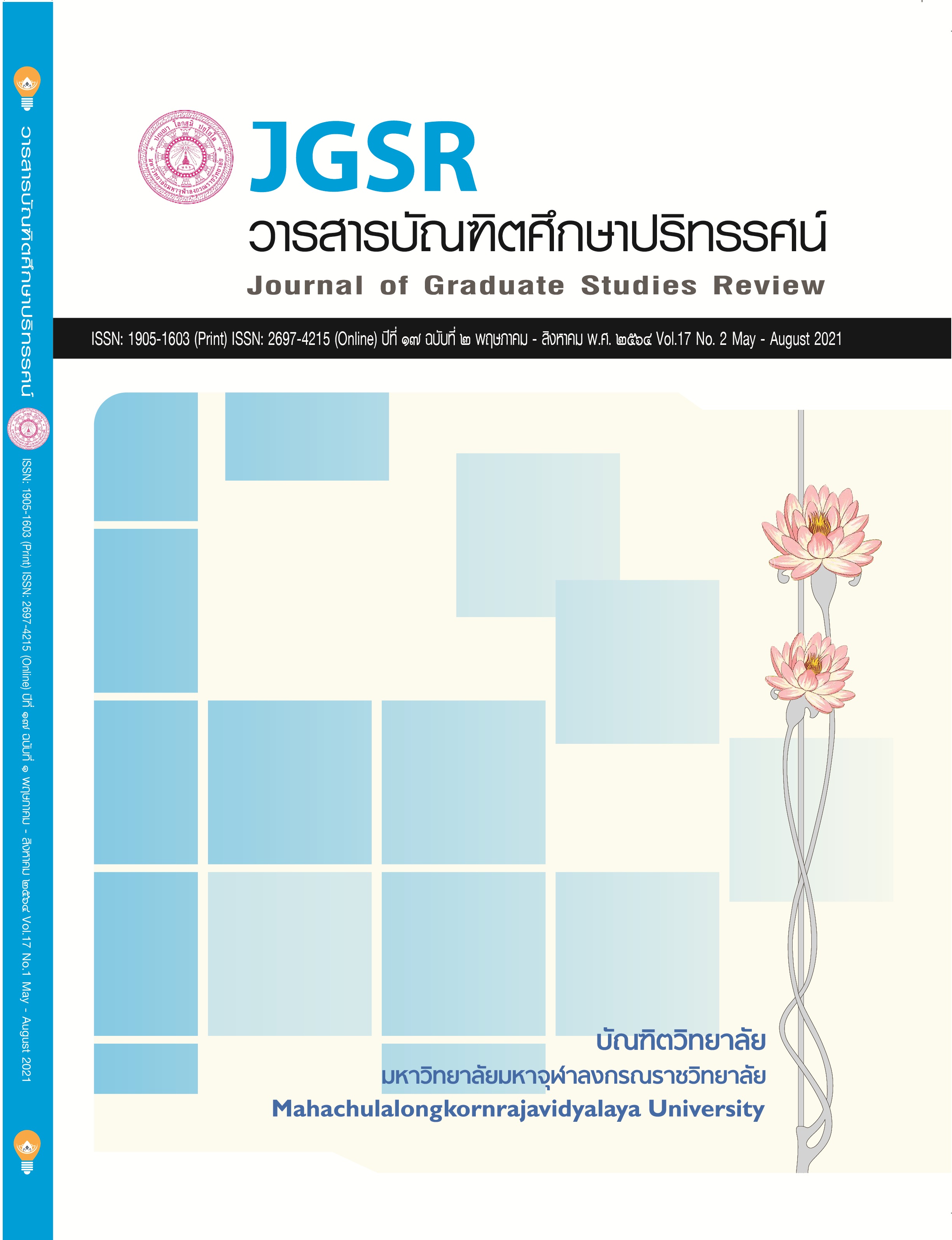Tao : Analytical Study in the Theravada Buddhist Philosophy
Main Article Content
Abstract
This article which the author focuses on analytical Taoism studies. In the view of Theravada Buddhist Philosophy. The author found the heart principle of Tao was ‘Causal Factor'. Lao Zhi conceptualizes that Tao has symptoms a fuzzy and messy that it was unable to identify what the Tao was. The author replied that Tao is Avijja (ignorance) which is one in the Causal Factors. Because as such a symptom is a symptom of ignorance (Avijja). When Tao is the cause of One, and One is the cause of Two. Two is the cause of Three. Three is the cause of all things. The author proposes that Tao is the ultimate Causal Factor. With the ignorance is One that is the original cause become vital forces of two life that are emerged as the mind and the body, and these two are due to cause of Three. Three is the three karmic intentions of all things related to living and non-living things. With all those Causal Factors that make up the Sangkharadhamma by the natural law of definition 5 clause, that resulting in a valuable daily life Because we must be aware of the consequences of evil actions that cause a difficult decision (Moral Dilemma), etc. Therefore Tao falls in power of the trinity that is the heart principle of the Theravada Buddhist philosophy.
Article Details
บทความนี้เป็นความคิดเห็นส่วนผู้แต่ง กองบรรณาธิการไม่จำเป็นต้องเห็นด้วยเสมอไป
References
ทองหล่อ วงษ์ธรรมา, เต๋า : ทางแห่งธรรมชาติ, (กรุงเทพมหานคร : โอเดียนสโตร์, ๒๕๔๙).
มหาจุฬาลงกรณราชวิทยาลัย. พระไตรปิฎกภาษาบาลี ฉบับมหาจุฬาเตปิฏกํ ๒๕๐๐. กรุงเทพมหานคร: โรงพิมพ์มหาจุฬาลงกรณราชวิทยาลัย.
สิทธัทถเถระ, สารสังคหะแปล ชุด ๕ พระมหาธีระยุทธ เขมธมฺโม (ปราชญ์นิวัฒน์) แปล, (กรุงเทมหานคร : ๒๕๓๗)
เหลาจื่อ, วีถีแห่งเต๋า, พจนา จันทรสันติ แปลและเรียบเรียง, (กรุงเทพมหานคร : โอเพ่น โซไซตี้, ๒๕๖๒).


